Inhaled metal Tube dust can enter bloodstream, study finds
- Published
- comments
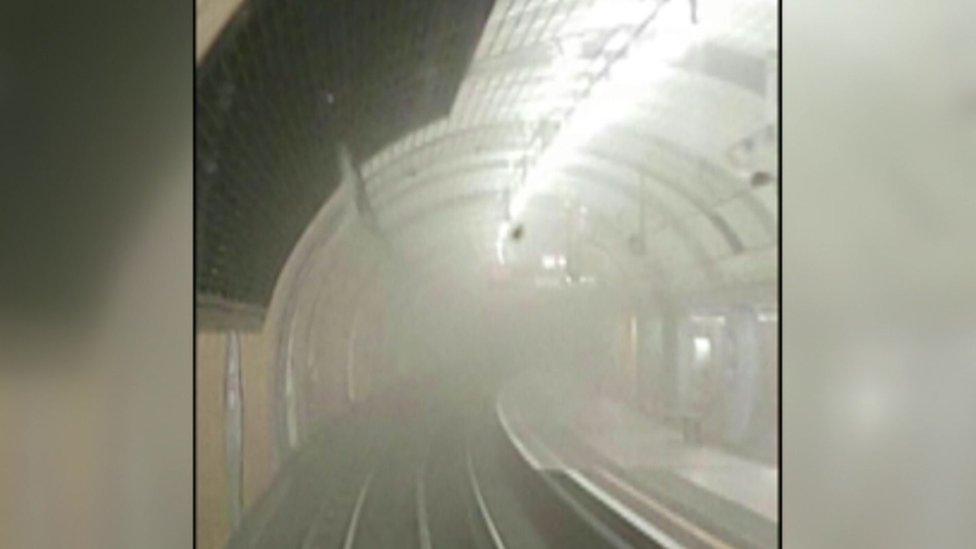
A photo showing dust in a tunnel
The air in London's Tube network is polluted with metallic particles small enough to enter the human bloodstream, according to a study.
Researchers at the University of Cambridge analysed dust samples from ticket halls, platforms and train driver cabins.
High levels were found of a type of iron oxide called maghemite.
The academics did not investigate whether the particles pose a direct health risk.
The findings, however, could be used in future studies.
The university's earth sciences department concluded the presence of maghemite particles indicated they are suspended for long periods due to poor ventilation, particularly on platforms.
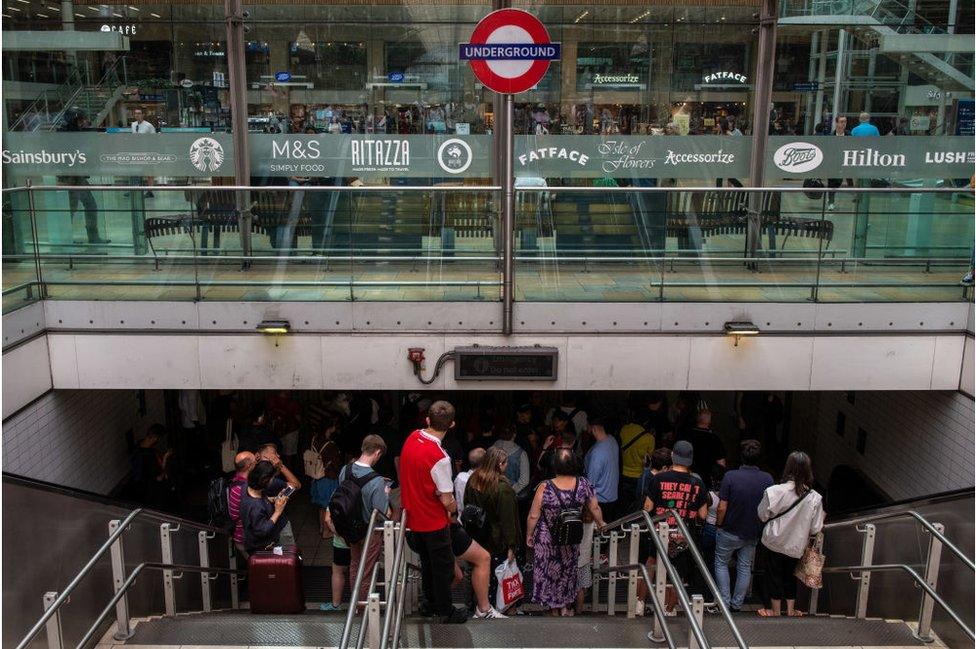
Paddington Tube station was one of the places samples were taken
Samples were collected in 2019 and 2021 from stations including Oxford Circus, King's Cross St Pancras and Paddington.
Pollution levels are normally monitored using standard air filters, which cannot capture ultrafine particles or identify particles. Some of the particles had a diameter of just five nanometres, making them small enough to be inhaled.
Prof Richard Harrison, senior author of the study, said: "If you're going to answer the question of whether these particles are bad for your health, you first need to know what the particles are made of and what their properties are.
"Our techniques give a much more refined picture of pollution in the Underground.
"We can measure particles that are small enough to be inhaled and enter the bloodstream.
"Typical pollution-monitoring doesn't give you a good picture of the very small stuff."
Transport for London's chief safety officer Lilli Matson said: "We have been working for many years to improve air quality on the Tube, and will continue to do so.
"Our monitoring has shown that dust levels on the Tube remain well below limits set by the Health and Safety Executive, but we are going further and have developed a number of cleaning regimes.
"This includes the use of industrial backpack dust cleaners, which are one part of our multimillion-pound Tube cleaning programme."
- Published9 January 2020
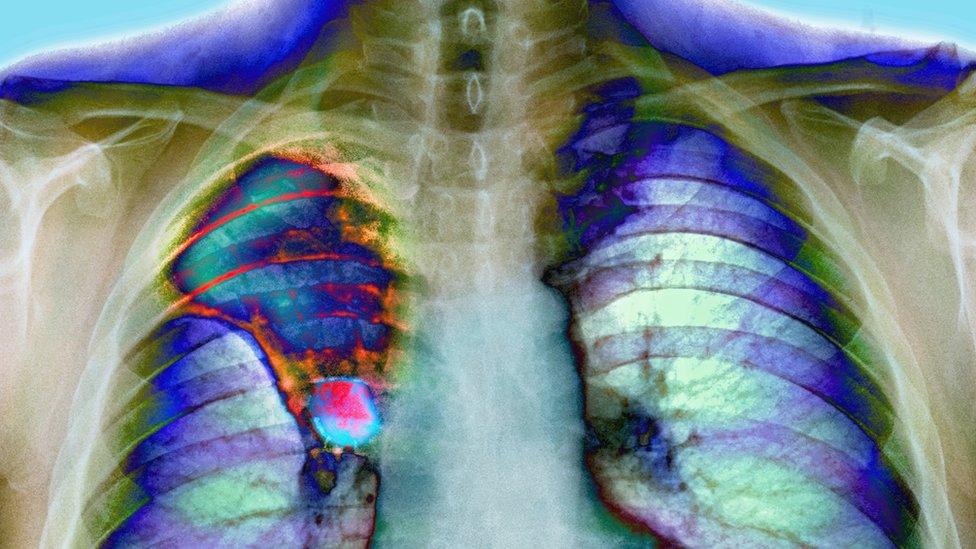
- Published3 May 2013
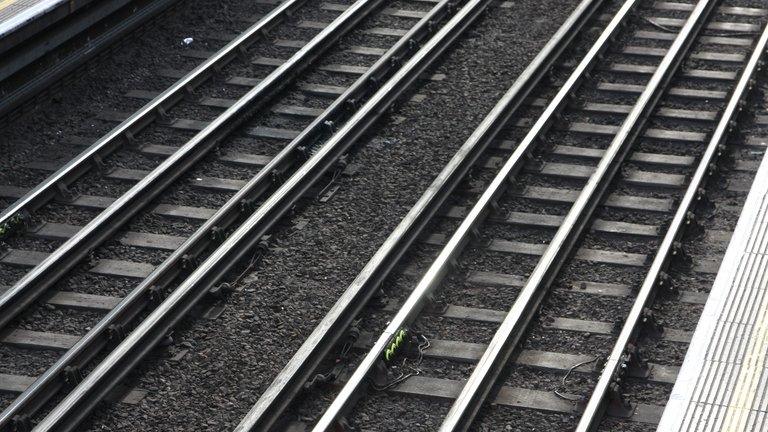
- Published3 March 2020
- Published10 January 2019
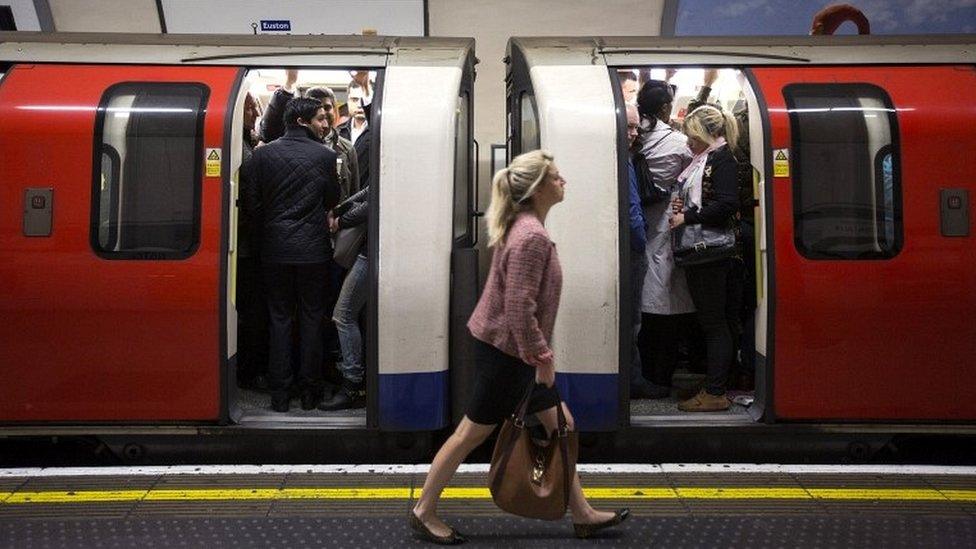
- Published17 October 2018